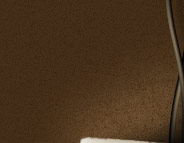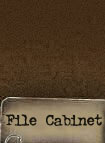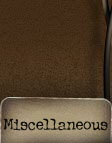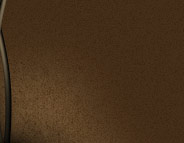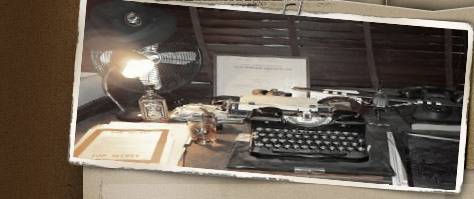 |
| |

Study Title:
Temporary War Cemetery at
Wolfswinkel
Subject: From D+2 of
Operation "Market
Garden" (September 19th 1944) to
May 30th 1949, the US Army
turned a pasture in Wolfswinkel,
a hamlet close to Son, into a
temporary cemetery, mostly for
troopers of the 101st Airborne
Division, Killed In Action.
Date: September 19th, 1944
- May 30th 1949
Location: Wolfswinkel
(Son),
Holland
Introduction:
Friday,
December 8th 2006 at about 4
PM a new monument was unveiled
in Son. The monument which was
a private initiative, reminds
of the fact that from
September 19th
1944 until May 30th 1949
a temporary war cemetery was
located at about half a mile
behind the black marble
marker. The marker is located
next to the stretch of road
that has become known as
"Hell's Highway", about 2
miles North of Son and next to
a rural road leading to the Waterhoef Farm.
The
inscription on the monument
marker reads:
"U.S. Military Cemetery
Son.
This
road led to the fields where
from 1944 to 1949 the American
and Allied temporary cemetery
was located behind the
"Waterhoef" Farm.This is where
the soldiers rested who paid
the ultimate price for our
freedom. Remember them all"
|
|
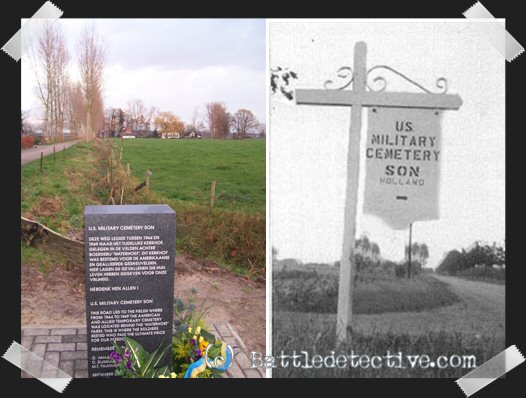 |
|
Battledetective.com was at the
monument on the 9th of
December 2006 and behind the
Waterhoef Farm met Mr. Swinkels;
until recently the owner of the
Farm. He told us that he had just
sold the farm since he has no
ancestors to take it over. Mr.
Swinkels told that he was 8 years
old when the German armies invaded
Holland. Whole columns of Nazi
troops travelled across the dirt
road next to the Waterhoef Farm on
their way West. That was because
Waterhoef happened to be on German
Wehrmacht maps and in the middle of
one of their planned advance routes.
Swinkels was 12
years old in 1944 and remembered the
drop of the 101st
Airborne on the Drop Zones on the 17th
of September. Until Tuesday the 19th,
there wasn'tt much fighting to be
heard on the farm, but on that day
German Panzer units from the East
attacked Son. This was also the day
that American jeeps and trucks
transported German POW's
to a pasture with turnips
behind the farm. The Germans were
ordered to dig graves for bodies
that were trucked in by dozens.
After the bodies were unloaded,
Grave Registration personnel took
off the personal effects from the
bodies, wrapped them into parachute
canopies and buried them 6 feet
deep.
After the war,
the dirt road was paved with
military temporary steel runway
plates. The cemetery attracted lots
of visitors and tents were put up
for the maintenance staff and
hostesses who looked after the guest
book.
|
|
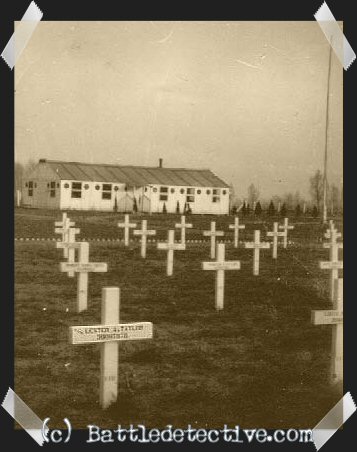 |
|
Until Friday,
December 8th 2006, only
the steel runway plates serving as
walls on one of the Waterhoef Farm
barns, reminded of the existence of
the cemetery where many of Holland's
liberators were laid to rest. |
|
|
|

|
|
|
|
|
|
U.S. Military Cemetery Son.
"This road led to the fields where from 1944 to 1949 the American and Allied temporary cemetery was located behind the 'Waterhoef' Farm.This is where the soldiers rested who paid the ultimate price for our freedom. Remember them all!" |
|
|
|
|
|
|
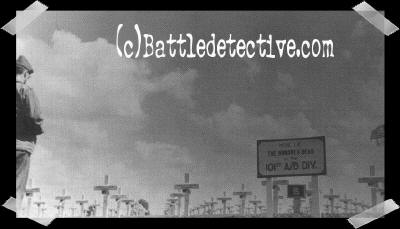
|
|
|
|
|
|
Here lie the Honored Dead of the 101st Airborne Division
A fellow-trooper visits his fallen buddies at the temporary cemetery.
(Click on these images to enlarge)
|
|
|
|
|
|
|
UPDATE 19SEP2019:
On 11SEP2019, as part of the
commemorative events for the 75th
anniversary of Operation Market
Garden, the Municipality of Son &
Breugel had a replica made of the
sign directing to the cemetery in
the late 1940's as well as an
information panel near the field
where the dead of the 101st Airborne
Division were once laid to rest.
This is an impression of the
ceremony where mayor Hans Gaillard
unveiled the sign and the
information panel.
Note that the nearby farms still
make good use of the perforated
steel planking (PSP or "Marston
Mats") that the US Army used for the
access road to the cemetery until it
was cleared in 1949. |
|
(click to enlarge)

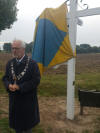
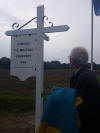
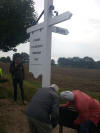
.jpg)
The road sign
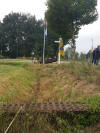


Alternative use of
the Marston Mats


The information
panel |
|
Back to Battle Studies

|
| |
|
|
|
| |
|
